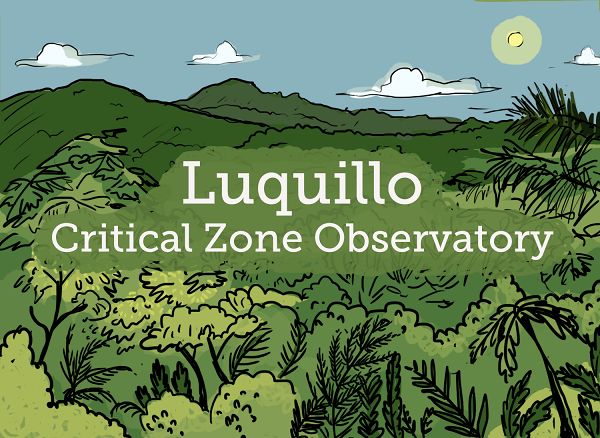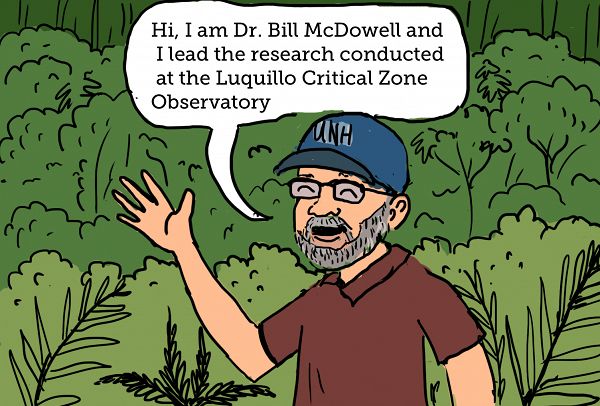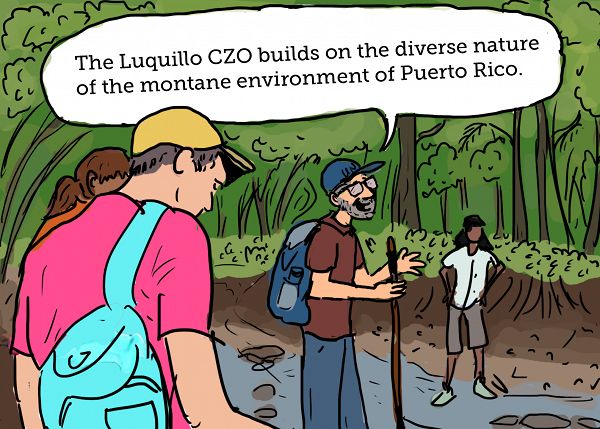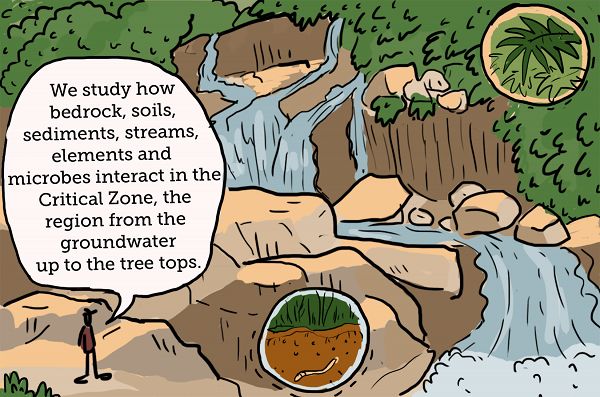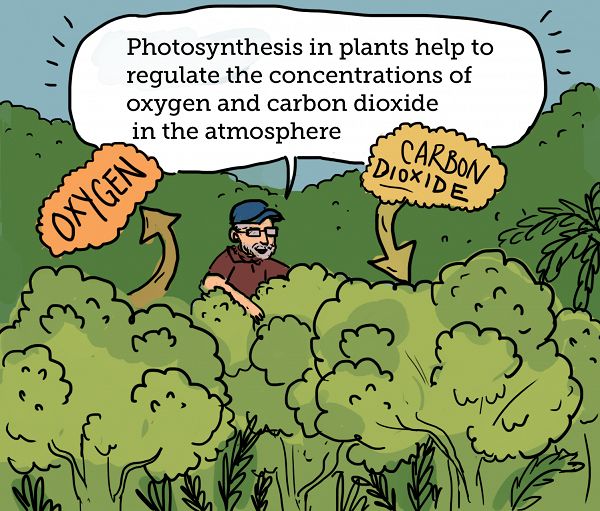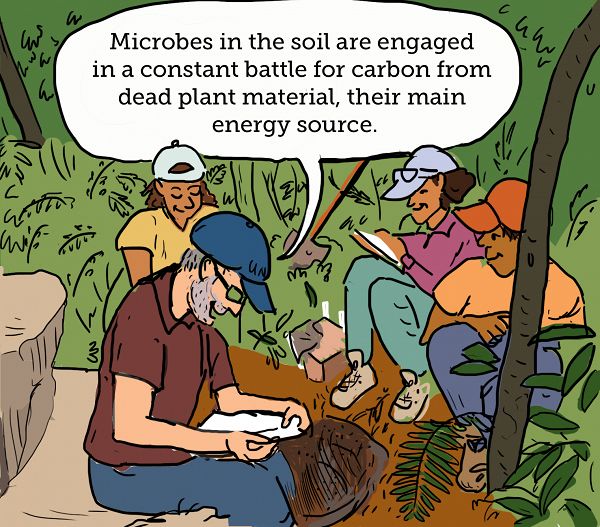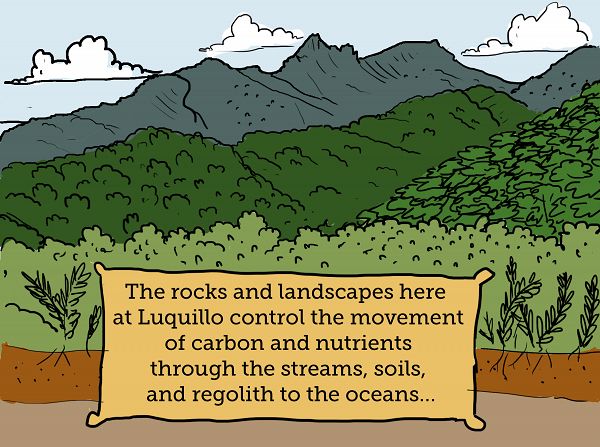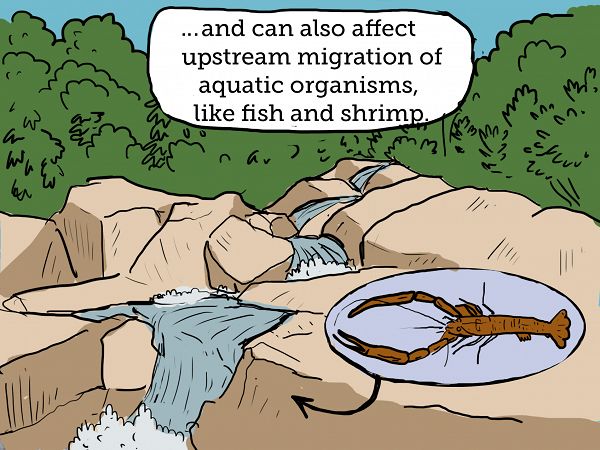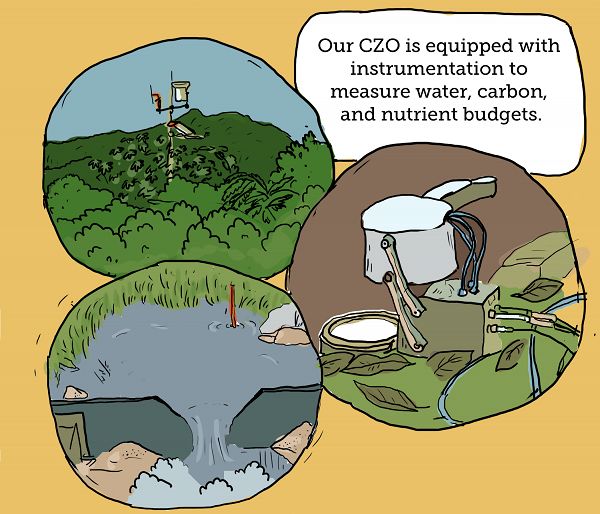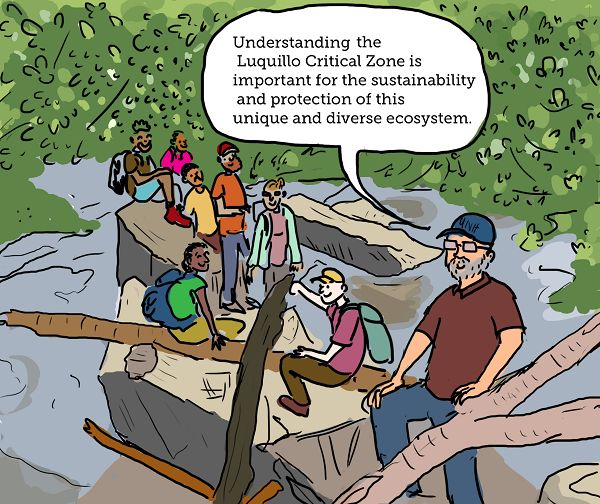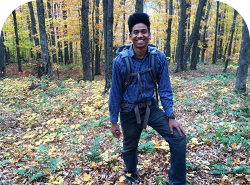Mar 06, 2017
An illustrated introduction to the Luquillo Critical Zone Observatory!
By Dr. Justin Richardson and Dr. Bill McDowell.
Illustrated by Alana McGillis.
Panel 1. A view of the densely forested Luquillo Mountains found at the Luquillo Critical Zone Observatory (LCZO).
Panel 2. Dr. Bill McDowell stands in the forest, waves and says, “Hi, I am Dr. Bill McDowell and I lead the research conducted at the LCZO.”
Panel 3. Researchers walk through the diverse nature of the montane environment of Puerto Rico.
Panel 4. LCZO researchers study how bedrock, soils, sediments, streams, elements and microbes interact in the CZ, the region from the ground water to tree tops. A stream flows down a steep mountainside.
Panel 5. Photosynthesis in plants help to regulate the concentrations of oxygen and carbon dioxide in the atmosphere. Arrows to and from trees show that trees take in carbon dioxide and release oxygen.
Panel 6. Microbes in the soil are engaged in a constant battle for carbon from dead plant material, their main energy source. Dr. McDowell and researchers collect microbial data from the soil.
Panel 7. The rocks and mountainous landscapes at LCZO control the movement of carbon and nutrients through the streams, soils, regolith to the oceans.
Panel 8. The landscape can also affect upstream migration of aquatic organisms, like fish and shrimp.
Panel 9. The CZO is equipped with instrumentation to measure water, carbon, and nutrient budgets. Instrumentation shown includes an automatic water sampler, a stream weir, and a flux tower.
Panel 10. Dr. McDowell, among CZ researchers, says, “Understanding the Luquillo Critical Zone is important for the sustainability and protection of this unique and diverse ecosystem.”
Files
What is the Luquillo CZO?
(675 KB pdf)
Printable 2-page version of this comic.

Justin B. Richardson
CZO INVESTIGATOR, STAFF. National Office outreach officer, Former CZO Post-Doctoral Fellow. Specialty: Soil biogeochemistry of plant-essential and toxic metals.
Outreach / Education Research EDUCATION/OUTREACH General Public K-12 Education
COMMENT ON "Adventures in the Critical Zone"
All comments are moderated. If you want to comment without logging in, select either the "Start/Join the discussion" box or a "Reply" link, then "Name", and finally, "I'd rather post as a guest" checkbox.
ABOUT THIS BLOG
Justin Richardson and his guests answer questions about the Critical Zone, synthesize CZ research, and meet folks working at the CZ observatories
General Disclaimer: Any opinions, findings, conclusions or recommendations presented in the above blog post are only those of the blog author and do not necessarily reflect the views of the U.S. CZO National Program or the National Science Foundation. For official information about NSF, visit www.nsf.gov.
Explore Further

